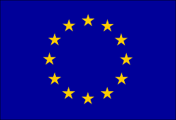iCOSHELLs: Co-Creating Innovative Solutions to restore Soil Health across Europe
Current status Ongoing (September 2024 / August 2028)
Funding programme EU Horizon, HORIZON-RIA, HORIZON-MISS-2023-SOIL-01-08
Keywords Soil health, Soil restoration, Living labs, stakeholder engagement, Policy recommendation, Biodiversity conservation, Sustainability
➡️ More info at: http://icoshells.eu/
Project Overview
🔎 Objective
iCOSHELLs (Innovative CO-creation Soil HEalth Living Labs) aims to promote broad and targeted efforts to restore soil health and take a systematic approach to increase stakeholder expertise, link research to practice, replicate effective soil restoration methods, and promote policies conducive to soil health. It includes six Soil Health Living Labs (SHELLs) across diverse EU climatic zones, including Sweden, Spain, Spain-France, Italy, Greece, and Bulgaria. These labs are envisioned as innovation hubs, tailored to address the EU’s specific soil health objectives through collaborative efforts to develop, test, and validate potential solutions, ensuring scalability beyond their immediate regions. iCOSHELLs places a strong emphasis on inclusive stakeholder engagement, from researchers to landowners.
Mission’s objectives covered in iCOSHELLs:
– Objective 4 – soil pollution/restoration
– Objective 6 – Improve soil biodiversity
– Objective 8 – soil literacy
⚒️ What
POLIMI (DICA, DASTU, CMIC) is a partner of the Italian Living Lab (LL) through the experimental site Off Campus Cascina Nosedo, a center dedicated to developing and sharing knowledge and skills between the university and local stakeholders. The initiative aims to integrate soil literacy objectives with the monitoring and modelling of soil–water interactions both within the site and in the surrounding agricultural area.
🐾 Who
Led by RISE Research Institutes of Sweden, the consortium unites 35 partners and will run for 4 years.
Dastu Team: Andrea Bortolotti, Elena Luongo, Matteo Clementi
Research Structure: Laboratorio di Simulazione Urbana Fausto Curti
 This project has received funding from the European Union’s Horizon Europe Research Innovation Action programme under grant agreement no. 101157394.
This project has received funding from the European Union’s Horizon Europe Research Innovation Action programme under grant agreement no. 101157394.

